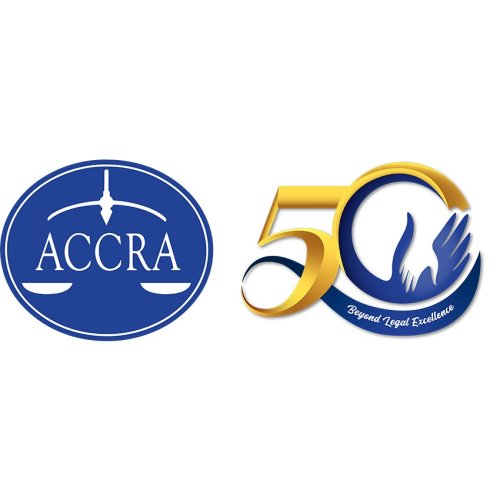Best Corporate & Commercial Lawyers in Cebu City
Share your needs with us, get contacted by law firms.
Free. Takes 2 min.
List of the best lawyers in Cebu City, Philippines
About Corporate & Commercial Law in Cebu City, Philippines
Corporate and commercial law in Cebu City, Philippines, is a specialized legal field addressing all concerns related to businesses, companies, and commercial transactions. This branch of law covers matters like forming companies, business registration, contracts, joint ventures, mergers and acquisitions, foreign investment, intellectual property, and regulatory compliance. Cebu City, as one of the major commercial and business hubs in the Philippines, is home to a thriving business community making corporate and commercial law an essential pillar for entrepreneurship, investment, and economic activity.
Why You May Need a Lawyer
Individuals and businesses may require legal assistance in corporate and commercial matters for various reasons. Legal advice is particularly important in the following situations:
- Starting a new business and registering with government agencies
- Reviewing or drafting contracts and agreements
- Entering joint ventures or partnerships
- Merging with or acquiring another company
- Handling corporate disputes among shareholders or directors
- Ensuring compliance with local and national regulations
- Protecting intellectual property such as trademarks, copyrights, and patents
- Restructuring or closing a business legally and efficiently
- Foreign companies looking to set up operations in Cebu City
- Responding to regulatory investigations or government inquiries
Having the guidance of a knowledgeable lawyer helps prevent legal issues before they arise and ensures your business complies with all applicable laws.
Local Laws Overview
In Cebu City, corporate and commercial activities are primarily governed by national laws, but local regulations also play a significant role. Key legal frameworks include:
- Revised Corporation Code (Republic Act No. 11232) - the main law governing corporations in the Philippines, detailing incorporation, management, reporting, and dissolution
- Business Permit and Licensing System - local ordinances requiring all businesses to register and secure permits from City Hall
- Foreign Investments Act (Republic Act No. 7042) - provides guidelines on foreign ownership and participation in local businesses
- Philippine Competition Act - ensures fair competition in commerce and prohibits monopolistic practices
- Intellectual Property Code (Republic Act No. 8293) - governs trademarks, copyrights, and patents of businesses
- Other Regulations - tax laws, labor laws, environmental regulations, and industry-specific rules administered by different government agencies
Specific departments within the Cebu City government enforce local ordinances, zoning compliance, and other city-specific commercial regulations. Companies operating in Cebu IT Park, export processing zones, or with special registrations may be subject to additional requirements.
Frequently Asked Questions
What is the first step to legally starting a business in Cebu City?
The first step is to determine your business structure (such as sole proprietorship, partnership, or corporation). You must then register with the Department of Trade and Industry (for sole proprietors) or the Securities and Exchange Commission (for partnerships and corporations), followed by registration with the Cebu City government for a business permit.
Do I need a local partner to set up a business in Cebu City as a foreigner?
Certain business activities are reserved for Filipinos, but foreigners can own up to 100 percent of some types of businesses, depending on the industry and location. The Foreign Investments Negative List outlines restrictions. Legal advice is highly recommended for foreign investors.
What are the basic corporate compliance requirements for companies in Cebu City?
Corporations need to hold regular board and shareholder meetings, keep and update records, file annual reports with the Securities and Exchange Commission, renew business permits annually, comply with local and national tax requirements, and follow employment laws.
How long does the business permit application process take in Cebu City?
Under normal circumstances, the process can take a few days to several weeks depending on the completeness of submitted documents, inspections, and compliance with zoning and other requirements. Streamlined procedures are available for some business types.
Is a written contract required for every commercial transaction?
While not all commercial transactions legally require written contracts, it is strongly recommended to have one for clarity, proof, and legal enforcement, especially for significant or long-term agreements.
What should I do if I am involved in a shareholder dispute?
Consult a lawyer immediately to review your corporation’s by-laws, shareholders’ agreement, and applicable laws. Mediation, negotiation, or legal proceedings may be necessary, depending on the circumstances.
Can a company be incorporated with just one person?
Yes. Under the Revised Corporation Code, it is now possible to form a One Person Corporation, allowing a single individual to fully own and manage a corporation, provided specific requirements are met.
How are intellectual property rights protected in Cebu City?
Register your trademarks, copyrights, and patents with the Intellectual Property Office of the Philippines. Local government units assist in enforcing these rights along with the national agency in the case of infringement or disputes.
What tax obligations should my company expect in Cebu City?
Businesses must pay local business taxes, community taxes, and relevant national taxes including income tax, value-added tax, and withholding tax. Registration with the Bureau of Internal Revenue is mandatory.
What legal consequences may arise from operating an unregistered business in Cebu City?
Unregistered businesses face penalties such as fines, business closure, and legal action from city authorities. Failure to comply with licensing and tax requirements may also lead to criminal liability.
Additional Resources
If you need more information or assistance, the following organizations and government offices can be of help:
- Securities and Exchange Commission (SEC) - for company registration and compliance
- Department of Trade and Industry (DTI) - for single proprietorship registration
- Cebu City Business Permit and Licensing Office - for business permits and local regulations
- Bureau of Internal Revenue (BIR) - for tax registration and compliance
- Intellectual Property Office of the Philippines (IPOPHL) - for intellectual property concerns
- Philippine Chamber of Commerce and Industry (PCCI) Cebu - for business networking and support
- Integrated Bar of the Philippines Cebu Chapter - for finding qualified lawyers
Next Steps
If you need legal assistance in any corporate or commercial matter in Cebu City, consider the following steps:
- Clearly identify your specific legal concern or business objective
- Gather all relevant documents such as business plans, contracts, or permits
- Research and reach out to law firms or individual lawyers experienced in corporate and commercial law in Cebu City
- Prepare questions in advance to discuss with your chosen lawyer during an initial consultation
- Follow your lawyer’s advice regarding next actions, filing of documents, compliance, or dispute resolution
- Stay updated on deadlines and ongoing legal requirements to ensure your business remains compliant
Seeking early legal advice can help you avoid costly mistakes and put your business on a solid legal foundation in Cebu City.
Lawzana helps you find the best lawyers and law firms in Cebu City through a curated and pre-screened list of qualified legal professionals. Our platform offers rankings and detailed profiles of attorneys and law firms, allowing you to compare based on practice areas, including Corporate & Commercial, experience, and client feedback.
Each profile includes a description of the firm's areas of practice, client reviews, team members and partners, year of establishment, spoken languages, office locations, contact information, social media presence, and any published articles or resources. Most firms on our platform speak English and are experienced in both local and international legal matters.
Get a quote from top-rated law firms in Cebu City, Philippines — quickly, securely, and without unnecessary hassle.
Disclaimer:
The information provided on this page is for general informational purposes only and does not constitute legal advice. While we strive to ensure the accuracy and relevance of the content, legal information may change over time, and interpretations of the law can vary. You should always consult with a qualified legal professional for advice specific to your situation.
We disclaim all liability for actions taken or not taken based on the content of this page. If you believe any information is incorrect or outdated, please contact us, and we will review and update it where appropriate.
Browse corporate & commercial law firms by service in Cebu City, Philippines
Cebu City, Philippines Attorneys in related practice areas.

















